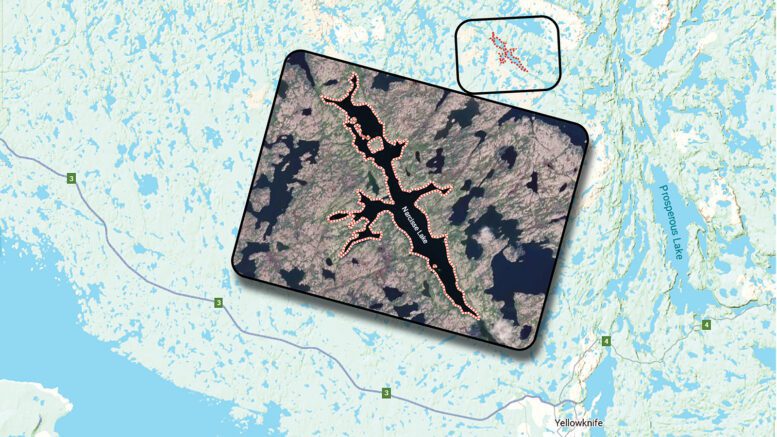A Yellowknife-born Mi’kmaq man must remove his family’s quarter-century-old cabin on public land north of Narcisse Lake, as he is not a member of an NWT Indigenous group, a court has ruled.
In the late 1990’s, Matt Pond built a cabin located north of Narcisse Lake on lands now administered and controlled by the territorial government. He has relied on his Indigenous status to justify his occupancy of the site, stated an NWT Supreme Court ruling.
Pond is a member of the landless Qalipu (Hal-lee-boo) Mi’kmaq First Nation in Newfoundland and has unsuccessfully tried to have his band membership transferred to the Yellowknives Dene First Nation (YKDFN).
In her ruling issued Thursday, Justice Sheila MacPherson stated she, “acknowledges that the effect … of an order to remove his family cabin is significant,” but the GNWT has to be able to manage lands in a responsible manner.

NWT Supreme Court Justice Sheila MacPherson. (Photo: Lawson Lundell LLP)
She continued: “Unauthorized occupancy is a longstanding land management issue across the Northwest Territories. In my view, the assertion that (Mr. Pond) might acquire a right to occupy the site through a transfer of band membership is speculative and hypothetical and … it could be many years before (Mr. Pond’s) efforts to become a member of the YKDFN s successful and potentially even longer to determine the legal effect of that membership.”
Pond told the court he made inquiries with the relevant federal government department in the late 1990’s and received verbal confirmation that because members of his family had “Indian status,” they could build a small traditional use cabin.
He again made inquiries in early 2000’s, after the federal lands devolved to the GNWT in 2014, and received assurances that a lease was not required as there was no imminent risk that any cabins built on public lands would be removed.
“(Mr. Pond) asserted that by virtue of having Indian status and being born in Yellowknife, Northwest Territories, he was eligible to join any of the local Indigenous groups,” stated the judge.
“He indicated that it was his intent to join a local Indigenous group, however, he wished to first await the finalization of the land claim settlements in the area.”
As those processes are likely still years from being finalized, Pond did meet with a YKDFN Chief and explained his desire to transfer his band membership.
He obtained a General Hunting Licence on June 2024, but the same was denied in October 2024.
Justice MacPherson stated: “The law is clear that simply being a member of another Indigenous organization whose historic activities were carried out in a part of the country geographically distant from the (NWT) does not, by itself, confer a right to use and occupy the site.
There is a Catch 22 of sorts, as the Indian Act details the registration of Indigenous people and the maintenance of band lists containing the names of members.
Section 12 provides that a person who is a member of one band is entitled to have their name transferred to another band if the council of the admitting band consents.
Then Section 13 states that a person cannot be listed on more than one band list.
That would mean Pond would require the consent of the YKDFN accompanied by the willingness of the Qalipu Mi’kmaq First Nation to remove him from their band list.
There was no evidence of the YKDFN agreeing to admit him as a member nor the QMFN relinquishing him as a member.
Stated the judge: “It is not enough to simply assert a right; that right must be verified by the Indigenous organization.”





